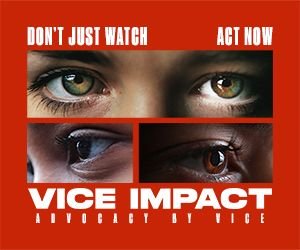
How Apple changed the way we date.
Motherboard staff is exploring the cultural, political, and social influence of the iPhone for the 10th anniversary of its release. Follow along.
Dating these days kind of sucks. There's ghosting, negging, juggling five different apps. It's a hard life.
But this isn't about those things, exactly. It's about the medium that so many of us rely on to date—iMessage. The ever-evolving messaging app from Apple has long been one of the best we have. And iMessage's design has had a significant impact on the way we communicate, and build (or destroy), relationships.
Like many subtle parts of dating—choice of liquor, deciding who pays the bill—iMessage has become a status symbol. You might've heard the horror stories of people getting bullied, or ignored because they have the lowly green bubbles of a non-Apple phone, instead of the nice, rounded blue iMessages.
Last year, technology reporter Michael Nunez even said that he was switching phones because he felt he needed iMessage. "You don't know what if feels like to question your digital identity over something so minute," he wrote, partly in jest. "Sorry, Android. But after about a decade, our love affair is over. I'm single, I'm ready to mingle, and I'm a green bubble no more."
It's not just Apple snobbery that makes iMessaging, and the people who use it, more desirable. I asked my friend Pavani Yalla, a leader experience designer at Second Story, to describe why the design elements that Apple employs here are so addictive.
She pointed to bubble effects, full screen animations and digital touch, geared toward younger users. The ability to react to messages with hearts and thumbs up signs are similar to the social media platforms we spend hours on already—similar to Facebook likes.
"What I love about iMessage is that the interface keeps the most important feature front and center: the text messages," Yalla told me. "No matter how many updates the app has undergone over the years, this remains true."
While much of iMessage looks like other messaging platforms, several features have had a particular impact on the way we date. Like the animated dots ("...") that indicate that someone is typing, and the optional (and insane, in my opinion) read receipts, which confirm that somebody has seen your message
It's these elements that often take a simple conversation and inject it with incredible amounts of anxiety, frustration and self doubt in the dating realm. And that happens in part because text messaging leaves lots of room for misunderstanding.

"Particularly when one person or the other wants it to be more than friendship, you don't have much information to go on other than response time," said Jeremy Birnholtz, a researcher who studies human-computer interaction issues and text messaging at Northwestern University. "And you're going to read into everything."
Birnholtz walked me through some of the most important issues associated with texting and dating—ones that most of my friends and I have encountered and dissected over the years as we navigate the strange world of technological courtship.


Congratulations @ali.haider! You have completed some achievement on Steemit and have been rewarded with new badge(s) :
Click on any badge to view your own Board of Honnor on SteemitBoard.
For more information about SteemitBoard, click here
If you no longer want to receive notifications, reply to this comment with the word
STOPBy upvoting this notification, you can help all Steemit users. Learn how here!
Hi! I am a robot. I just upvoted you! I found similar content that readers might be interested in:
https://motherboard.vice.com/en_us/article/7x9z34/love-in-the-time-of-imessage
Congratulations @ali.haider! You received a personal award!
You can view your badges on your Steem Board and compare to others on the Steem Ranking
Do not miss the last post from @steemitboard:
Vote for @Steemitboard as a witness to get one more award and increased upvotes!